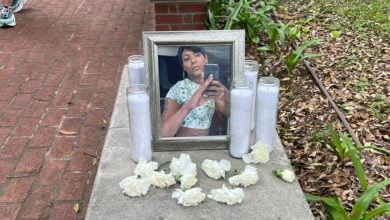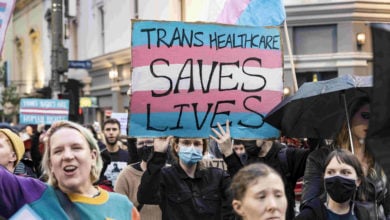In the mainstream media,
same-sex couples with children are often portrayed as predominantly white,
well-to-do and living in the urban North East or on the West Coast. However,
recent data tell a different story.
The 2010 Census
indicates that these images are false and ignore the ethnic diversity of
families of same-sex couples. Counting gay and lesbian couples with or
without children, there are an estimated 581,000 such families in the United
States, reports Gary Gates, a University of California, Los Angeles
demographer. About one-third of lesbian couples have children as do one-fifth
of gay male couples.
More than in any other
region in the U.S., child-rearing is most common among lesbians and gays in the
Southern states—a region historically known for its institutional racism and
bigotry.
In Florida, for example, gays and lesbians have been banned
from adopting for 33 years. The ban was lifted just last October in a three-judge
state appellate court hearing that declared Florida’s ban on gay and lesbian
adoption unconstitutional.
Yet, data from the 2010 Census showed that Jacksonville,
Fla., has one of the largest populations of same-sex couples rearing children
in the entire country (32 percent), second only to San Antonio, Texas (34
percent).
Also in the leadership of creating same-sex parent families
are couples from Black and Latino communities. Black and Latino couples are
twice as likely as whites to be raising children, according the Census Bureau
sample.
These families are also more likely to be struggling
economically. Lesbian and gay families are facing many of the same tough
economic times as heterosexual couples with children, but the denial of basic
rights for these families makes the economic downturn all the more challenging.
For example, very few companies offer health coverage for a domestic partner.
This impacts the health of the partner and children. Statistically, children of
same-sex couples are less likely to have health coverage.
The new information about gay and lesbian parents paints a
picture of a sector of the U.S. working class. Many of these parents already
had children from previous heterosexual relationships before coming out or
entering into a same-gender relationship; others sought to be foster or
adoptive parents. Gay and lesbian couples have actively participated as foster
parents even in states like Florida, where until recently lesbians and gays
could care for foster children but not adopt them.
Irish revolutionary Bobby Sands once said, “Our revenge
will be the laughter of our children.” Perhaps it will be the laughter of the
children of gay and lesbian parents in the South that serves as a call to
action for the necessary social changes to support and nurture a redefinition
of family in a reorganized society free of racism and LGBT bigotry.





